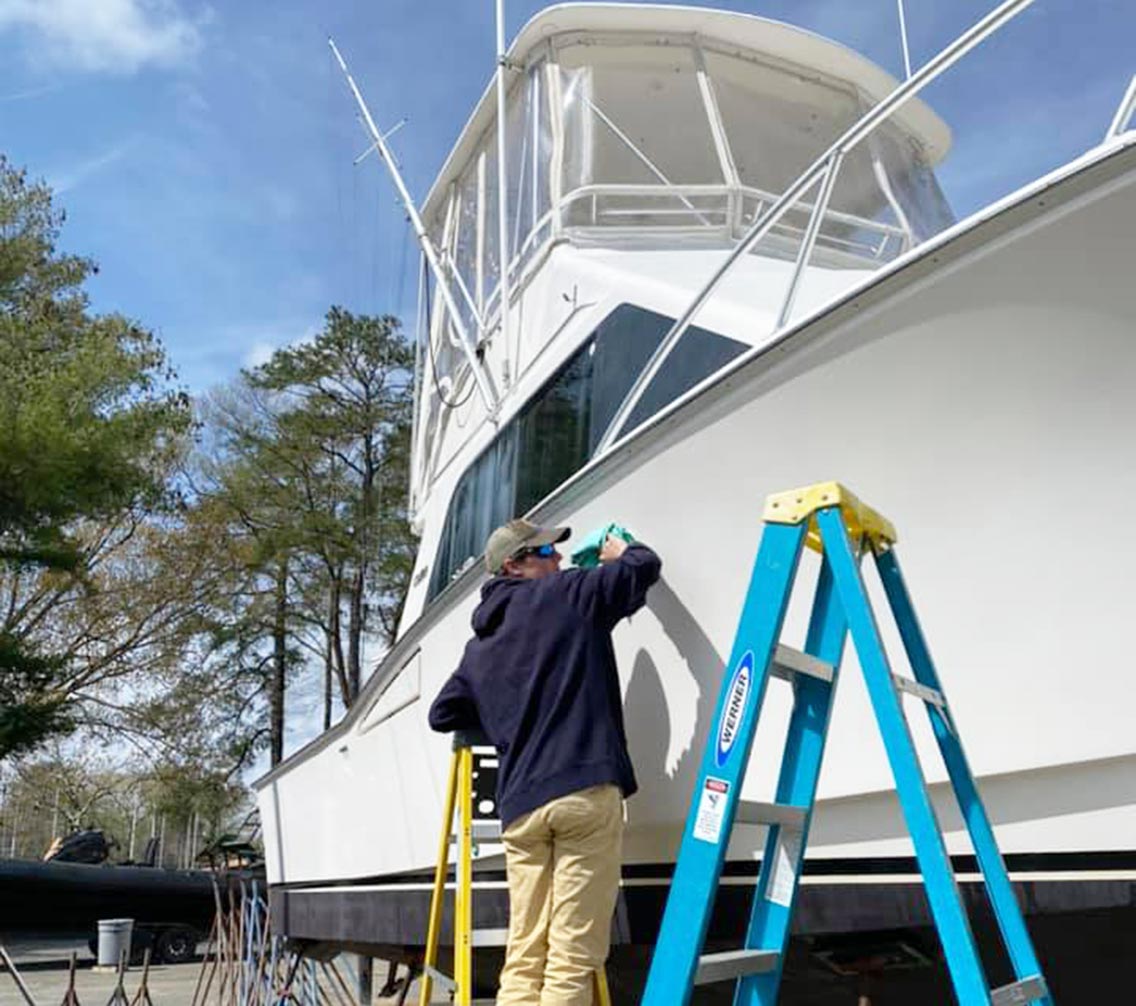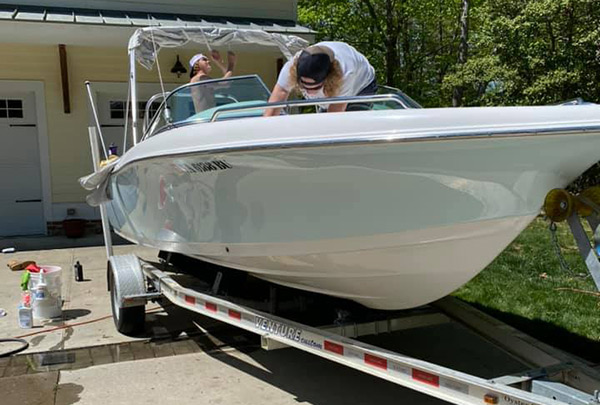By Andrew King
 Entering the spring 2020 semester, Ben Skinner ’23 and his classmates in Hampden-Sydney’s Entrepreneurial Thinking course never could have predicted the chaos that was about to unfold. The changes wrought by COVID-19 hurled H-SC students—and all of us—into a realm full of unknowns. But some of these enterprising students, working with the College’s Flemming Center for Entrepreneurship and Innovation, leveraged their new knowledge about building businesses to successfully launch their own ventures amidst the reeling economy.
Entering the spring 2020 semester, Ben Skinner ’23 and his classmates in Hampden-Sydney’s Entrepreneurial Thinking course never could have predicted the chaos that was about to unfold. The changes wrought by COVID-19 hurled H-SC students—and all of us—into a realm full of unknowns. But some of these enterprising students, working with the College’s Flemming Center for Entrepreneurship and Innovation, leveraged their new knowledge about building businesses to successfully launch their own ventures amidst the reeling economy.
As part of the College’s Compass experiential learning program, BUSN 223: Entrepreneurial Thinking focuses on practicing the many activities that founders must undertake to prototype and validate innovative new ventures. After planning and testing business models that they develop using entrepreneurial mindset methods, students evolve into founders as they learn skills ranging from identifying solvable problems and rapid prototyping to the nuts and bolts of bookkeeping and managing day-to-day operations. The class condenses the start-up process—which can take years depending on the business’s complexity—into three months underpinned by the frameworks that serial entrepreneurs have used to launch the most successful organizations.
Among the many principles that the students learn as they built their ventures is to “make lemonade out of lemons.” Expert entrepreneurs employ this concept to keep moving forward when unexpected circumstances derail their plans. It’s easy to interpret the COVID-19 pandemic that slowed the world to a crawl as a rather impressively-sized lemon for last semester’s students, who were in the initial stages of prototyping their venture models when the virus hit.
Several students quickly realized that their chances of successfully testing ventures were cut practically to nil in the new environment of social distancing and cracking supply chains. Ben had used the first few weeks of class to lay out his plans for building a full-service recreational boat dealership on the Chesapeake Bay near his home. His financial model made sense and he was working on fundraising when spring break—and the coronavirus—arrived in mid-March. As quarantine restrictions and business closures loomed, Ben realized that winning investors in such times was a long shot. Ben says, “At first I thought I wanted to sell boats, but I quickly realized that that wasn’t something I could do with the resources available to me.”
 Instead of holding on to his dealership dreams and tinkering with his plans, he pivoted to a new business model anchored in his skills, network, and pure gumption to take advantage of the unexpected opportunity that being at home near the water offered. He explains, “I scaled my idea down to something I could start right away, which was detailing boats. This service was not extremely expensive to start but is a necessity for boat owners. Most boat owners pay a lot of money to have their boats detailed, so I knew that if I could get the price lower than most companies, I could earn their business. Detailing a boat can be expensive, but based on my prior experience, I knew there was an opportunity for me to disrupt the current business models out there.”
Instead of holding on to his dealership dreams and tinkering with his plans, he pivoted to a new business model anchored in his skills, network, and pure gumption to take advantage of the unexpected opportunity that being at home near the water offered. He explains, “I scaled my idea down to something I could start right away, which was detailing boats. This service was not extremely expensive to start but is a necessity for boat owners. Most boat owners pay a lot of money to have their boats detailed, so I knew that if I could get the price lower than most companies, I could earn their business. Detailing a boat can be expensive, but based on my prior experience, I knew there was an opportunity for me to disrupt the current business models out there.”
Ben founded Yorktown Boat Care LLC to serve boat owners prepping for the coming boating season. An avid boater himself, Ben knew the headaches that often pop up when prepping a boat that has sat idle over the winter months. After serving a few clients, Ben quickly hired schoolmates, who were also homebound, and created teams that could clean boats around Hampton Roads. Within weeks, the newly launched company had already served several dozen clients, and Ben was looking forward to a strong first summer season in business.